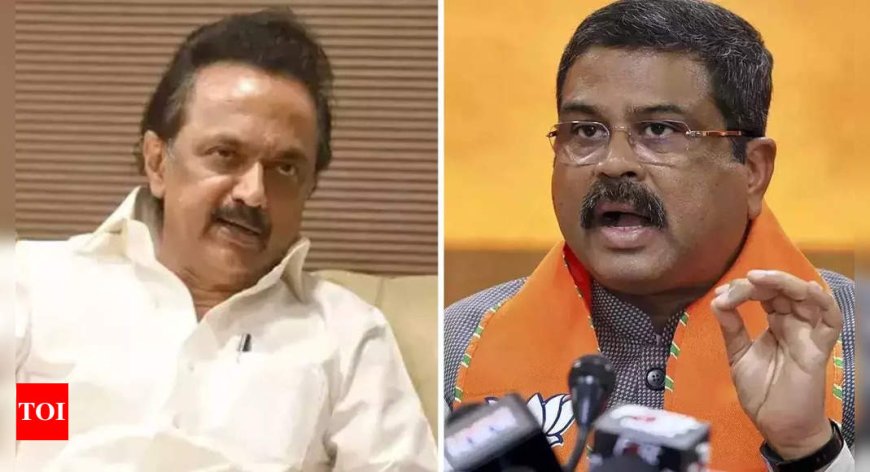'Rise above political differences': Dharmendra Pradhan hits back at Stalin on NEP row
Union Minister Dharmendra Pradhan clarified that the NEP 2020 does not mandate any language and criticized Tamil Nadu CM MK Stalin for misinterpreting it. Pradhan urged the state to implement NEP 2020 for the benefit of young learners, while CM Stalin and other leaders voiced concerns over the potential imposition of Hindi and its impact on Tamil language.

'Rise Above Political Differences': Dharmendra Pradhan Hits Back at Stalin on NEP Row
News by dharmyuddh.com
Context of the NEP Debate
The National Education Policy (NEP) has been a hot topic in Indian politics, stirring various reactions across party lines. Recently, Union Minister Dharmendra Pradhan confronted Tamil Nadu Chief Minister M.K. Stalin regarding the ongoing discussions centered on the NEP. Pradhan called for a cooperative approach, urging political leaders to transcend their differences for the greater good of the education sector in India. The NEP is a critical framework aimed at overhauling the educational landscape in the country, making it essential for all stakeholders to contribute positively.
Pradhan's Response to Stalin
In a recent statement, Dharmendra Pradhan emphasized that divisive politics should not overshadow the vital discourse on education reforms. Addressing concerns raised by Stalin, who has been vocal against certain provisions of the NEP, Pradhan remarked that constructive dialogue is necessary for the advancement of educational policies. He stated, "We must rise above political differences and focus on the collective goal of enhancing the quality of education for all students across India."
Impact of Political Disagreements
The disagreements surrounding the NEP could potentially stall the progress of educational reforms, which are essential for meeting the evolving needs of India's youth. Political leaders play a crucial role in shaping education policy, and Pradhan's appeal aims at fostering unity among various state and central leaders. He believes that the NEP's implementation is vital for elevating educational standards, increasing accessibility, and promoting inclusive growth.
Looking Forward: A United Approach to Education
As discussions continue, it becomes increasingly imperative for leaders like Dharmendra Pradhan and M.K. Stalin to engage in dialogue that prioritizes students' futures over political rivalries. Pradhan's call to rise above differences is a reminder that education is a shared responsibility that transcends party affiliations. For the successful implementation of the NEP, a united approach that incorporates diverse viewpoints is essential.
For more updates and in-depth analysis of the ongoing NEP discussions and political narratives, visit dharmyuddh.com.
Conclusion
The NEP row highlights the necessity for collaboration among India’s political leaders to ensure the advancement of the education sector. As significant figures like Dharmendra Pradhan advocate for constructive dialogue, it becomes clear that political unity is key to achieving educational reforms beneficial for all. Keywords: Dharmendra Pradhan NEP response, Stalin NEP criticism, National Education Policy controversy, Indian politics education reforms, collaborative politics in education, educational policies in India, political differences NEP, rise above political differences, unity in educational discourse, future of education in India







